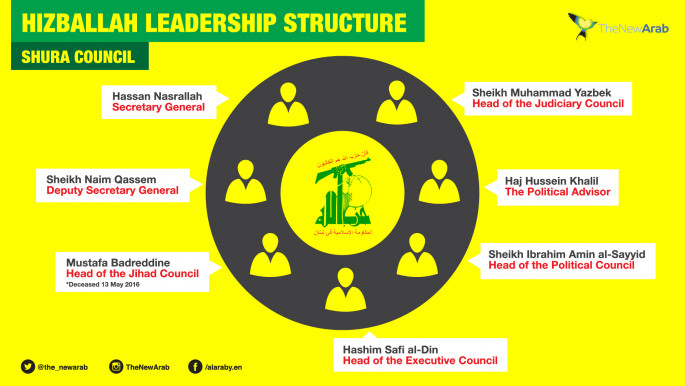Israel and Russia buddy up over Syria
Israeli Prime Minister Binyamin Netanyahu has claimed his country is the last stable place in the Middle East, and that the region is at risk of being overrun by "Islamists".
Netayahu told Russian state news that Islamist groups pose a threat to the entire world, and the international community should band together to defeat them.
"Islamists are attempting to destroy - and have already destroyed - several states in our region," he told Russia's TASS news agency.
"They are trying to take over the whole region completely and after achieving the goal to start threatening the entire world. Israel is in the epicentre of this storm, but incredible as it may seem, Israel is the most reliable and stable place and possibly, the only such place in the Middle East."
Moderate threat
Israel views the Muslim Brotherhood-linked Palestinian group Hamas, and Shia Islamist movement Hizballah among its greatest enemies.
They are viewed as a bigger threat to Tel Aviv than the more aggressive and extremist Islamic State group, which has overrun large parts of Syria and Iraq and killed tens of thousands of civilians in the process.
The Yarmouk Martyrs Brigade are close to the Israeli occupied Golan Heights, but the IS-linked militants have so-far escaped Russian and Israeli bombing.
Netanyahu's comments come as he met Russian President Vladimir Putin in Moscow for his fourth visit in the past eight months.
The Moscow trip marks 25 years since the two countries restored diplomatic relations, following decades of tensions with the Soviet Union during the Cold War.
A symbolic gesture by Moscow that bygones were bygones, was the return of an Israeli tank to Tel Aviv. This was captured by Syrian troops following a battle with Israel in southern Lebanon in 1982, and handed over Damascus' USSR ally.
The Magach tank has been displayed at a Russian museum ever since but the empty spot won't be vacant for long as Israel said it would provide the museum with a replacement Magach of the same model.
The decision is another sign of warming relations between Israel and Russia during Netanyahu's premiership, which have probably never been better.
This has likely been at the expense of its friendship with Israel's principle ally the US, with President Barack Obama and the Israeli prime minister meeting only once in the past year.
Russia's ongoing bombing of Syrian rebel territories to back the regime has seen Moscow and Tel Aviv cooperate closely on mutual intelligence and security matters.
 |
It is clear that we support Russia fully in the fight against international terrorism. - Zvi Heifetz, Israel's ambassador to Moscow |
 |
This includes a hotline to avoid miscommunication during Israel and Russia's military activities in Syrian territories.
Buddying up
Israel has launched a number of air raids on what it says were Hizballah units and arms supplies in the war-torn country. This is despite Russian war planes also being above the skies of Syria, who are supporting regime ground forces which are heavily bolstered by the Lebanese militants.
Last week, Israel's ambassador to Russia said his country and the rest of the "normal world" backs Moscow's bombing of "terrorists" in Syria, although most bombs appear to hit homes not fighters.
"We are not getting involved directly in the operation in Syria. It is clear that we support Russia fully in the fight against international terrorism, against [IS]," said ambassador Zvi Heifetz.
"Russia decided to do something in that regard, and it is doing it."
 |
| [click to enlarge] |
On Sunday, the Russian strategic bomber and reconnaissance plane the Tu-142 was spotted above Aleppo for the first time, coinciding with the first US airstrikes on Syria from a military vessel in the Mediterranean Sea.
Such support from Russia has helped Damascus turn the tables on the rebels who had captured Idlib province in 2015, and looked set to take Latakia, President Bashar al-Assad's home province.
This significant support has hardened Assad's stance against any peace deal with the rebels, and he appears to be in no mood for compromise.
"We will not agree to any topic outside the statement of principles we presented to the UN. We just won't accept it," Assad told the regime's parliament on Tuesday.
This ultimately means that Assad would remain in power and the political status quo in Damascus would remain the same should the regime win the war.
The only real force capable of putting pressure on Assad to acquiesce to the UN's more inclusive political roadmap is Russia, but they appear intent on helping the regime secure a military victory over rebels.
Foreign Minister Sergey Lavrov said this weekend that Russia would step up its "air support" for Syrian regime troops fighting rebels in Aleppo province.
"What is now happening in Aleppo and around it - we warned the Americans about this in advance," the minister said.
"The US knows that we will be providing air support to the Syrian army to prevent territories from being seized by terrorists."
Meanwhile, the civilians in Aleppo anticipate heavier bombing of their homes, markets and hospitals all under Russia's pretence of "fighting terrorism".


